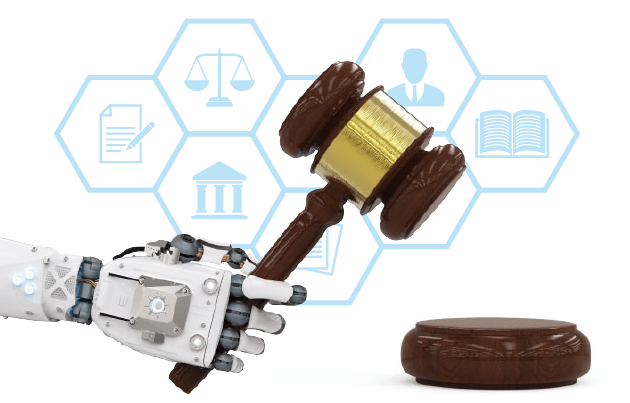
By Chan Sik Ahn, HMP LAW
Lawmakers and regulators have struggled to come to terms with bitcoin and other cryptocurrencies.
Cryptocurrencies have generated heated interest during the past few years, particularly in Korea. From one day to the next, new cryptocurrencies are being generated along with numerous exchanges that facilitate transactions, and some who have invested in cryptocurrencies have earned enormous investment returns equivalent to tens of billions of Korean won within only a few days.
The Korean government has taken considerable efforts to establish proper regulations that cover various cryptocurrency transactions by forming a joint task force from among related government authorities and publishing their findings. However, since it is quite difficult for the government to set policies on cryptocurrency, as such policies might have the effect of impairing the foundation of the legal currency system, there exist many unsolved and continuing problems related to cryptocurrency.
to set policies on cryptocurrency, as such policies might have the effect of impairing the foundation of the legal currency system, there exist many unsolved and continuing problems related to cryptocurrency.
In the following, we will introduce and share the current issues on cryptocurrency regulations in terms of regulations on initial coin offerings (ICOs) and regulations on the establishment and the usage of cryptocurrency exchanges, as of August 2018.
REGULATIONS ON ICOs
In Korea, Hdac, BOSCoin, PlusCoin, HYCON, ICON and MediBloc have successfully completed their ICOs, and many other currencies are currently undergoing the ICO process or are scheduled to commence such process. In recent years, many ICOs have been conducted through the establishment of corporations or foundations in foreign countries due to the uncertainty of the legal regulations in Korea.
On September 29, 2017, the Korean Financial Authority (KFA) announced that it would ban ICOs entirely. In its announcement, the KFA expressed its hard-line stance against all forms of ICO, including security-type ICOs conducted by way of allocating revenues from a given project or granting certain rights or dividends of a company, or coin-type ICOs by way of issuing new cryptocurrency on the relevant exchange’s platform, regardless of the technology or terminology used.
Since then, in January 2018, the Korean government, retreating from this hard-line stance, has announced certain guidelines for the prevention of money laundering on cryptocurrency exchanges and, accordingly, introduced a real-name financial transaction system for cryptocurrency exchanges to cool off the overheated social phenomena regarding cryptocurrencies. However, this has been described by some as a mere indirect regulation through existing banks and other financial institutions, and the Korean government seems to have been unable to make any further progress in relation to regulating ICOs.
If any cryptocurrency issued through an ICO can be converted into a “security” as defined under the Capital Markets Act, then such ICO may be subject to the provisions on issuing securities under the Capital Markets Act. However, since the existing Capital Markets Act adopts the principle that securities are only securities if stipulated by law, an instrument should not be regarded as a security if it does not fall under one of the definitions of “security” explicitly listed in the Act. Moreover, it is difficult to find a case where Korean financial authorities have applied the Capital Markets Act directly to any ICO case. On the other hand, considering the various forms and types of cryptocurrency, the possibility cannot be excluded that cryptocurrencies will be regarded as securities sometime in the future, as there have been several attempts to establish procedural regulations for ICOs, stipulating that ICOs constitute the issuance of securities under the Capital Markets Act, or similar arguments under other statutes.
The phrase ‘conducting a fund-raising business without permission’ as defined in the Act on Regulation of Conducting Fund-Raising Business without Permission, applies to any business that is conducted to raise funds from unspecified individuals (i) without first obtaining authorisation or permission or making a registration or report under other statutes or their subordinate regulations, and (ii) while also requiring a contract that guarantees a so-called ‘deposit guarantee’ to such investors. Therefore, ICO fund raising without ‘deposit guarantee’ may not generally constitute ‘conducting a fund-raising business without permission’. However, if the investment is designed to guarantee compensation for any investment loss for the ICO participants during a given ICO, then this could possibly be deemed as conducting a fund-raising business without permission (note that in Korea, some who raised funds under the guise of ICOs have been punished for violating the Act on Regulation of Conducting Fund-Raising Business without Permission). In addition, the Financial Services Commission and the Korean courts both maintain their position that the act of raising such funds may be deemed fraudulent in accordance with Article 347 of the Criminal Code, if there appear elements of deception or gambling in relation to those funds.
REGULATIONS ON CRYPTOCURRENCY EXCHANGES
There are no direct regulations governing the establishment and operation of cryptocurrency exchanges, and therefore the Korean government has announced its intentions in relation to regulating cryptocurrency exchanges merely based on authoritative interpretations. Similar to ICO procedures, however, it is anticipated that regulations on cryptocurrency exchanges will be legislated in the near future.
Act on Consumer Protection in Electronic Commerce
Under the Act on Consumer Protection in Electronic Commerce, an online order distributor shall file a report to the Korea Fair Trade Commission, and cryptocurrency exchanges have been operating their business as an online order distributor by selling (trading) cryptocurrencies online. However, as the Korea Fair Trade Commission stated in 2018 that cryptocurrency exchanges should not be regarded as online order distributors, it is now well-known that the major cryptocurrency exchanges have given up their position asserting that they are online order distributors.
Foreign Exchange Transactions Act
The Foreign Exchange Transactions Act applies to cases of providing services for the conversion of cryptocurrency into legal currency, and in this regard conducting a small-scale overseas remittance business shall be registered in accordance with the Foreign Exchange Transactions Act in order to provide such services. Unlike the foregoing, it is arguable whether remitting “cryptocurrency itself” (without converting to legal currency) to foreigners constitutes a case of remittance of funds as prescribed by the Foreign Exchange Transactions Act.
In this regard, referring to Japanese law as a comparison, the transfer of cryptocurrencies directly to third parties is not regarded as a remittance; however, the conversion of legal currency into cryptocurrency is deemed to constitute a remittance if the converted cryptocurrency is exchanged again for a third country’s legal currency.
In Korea, it is necessary to have further discussions regarding legislative movement on whether or not such remittances should be seen as actual remittances in accordance with foreign exchange concepts, or whether other regulations are needed instead.
Personal Information Protection Act; and Act on Promotion of Information and Communications Network Utilisation and Information Protection
The Personal Information Protection Act is a general law on the protection of personal information, which applies to all personal information processors and personal information entities. The Act on Promotion of Information and Communications Network Utilisation and Information Protection is a special statute that applies to the relationship between service providers and service information entities who use electronic communications networks (such as the internet). As cryptocurrency exchanges provide services online, both of the aforementioned statutes apply to them as information and communication service providers in charge of the establishment and operation of exchanges.
Also, if there is an EU user on the exchange in Korea, the General Data Protection Regulation (GDPR) may be applied, in addition to the Personal Information Protection Act of Korea. In such case, a registered EU agent shall be appointed for the EU users not established in the EU in compliance with GDPR.
Act on Real Name Financial Transactions and Confidentiality; and the Act on Reporting and Using Specified Financial Transaction Information
With regard to know-your-customer (KYC) and anti-money laundering (AML) obligations, there are certain statutes such as the Act on Real Name Financial Transactions and Confidentiality, and the Act on Reporting and Using Specified Financial Transaction Information. However, these statutes do not apply to cryptocurrency exchanges, as such exchanges are not financial institutions.
However, based on an authoritative interpretation issued on November 1, 2017, the Korean government’s joint task force has proposed guidelines on strengthening identity verification and the reporting of suspicious transactions. As the Korea Blockchain Association’s self-regulatory proposal also stipulates user protection/ identity verification, and most of the proposed legislation relevant to cryptocurrency already prescribe KYC/AML obligations, certain procedures involving KYC/AML should be prepared in advance.
APPLICATION OF CRIMINAL CODE
In addition to the specific regulations mentioned above, cases of allegedly conducting ICOs or operating cryptocurrency exchanges improperly are generally subject to criminal penalties. For example, any ICO seemingly without business value can constitute a crime related to fraud. Also, if a cryptocurrency is listed, but cannot be properly used in any transactions due to some deficiency, the representative director of the relevant cryptocurrency exchange may be punished for “receiving or giving bribes by breach of trust” and directors who arbitrarily use funds from exchanges may be punished for embezzlement or misappropriation.
Also, the Supreme Court has recently ruled that “bitcoin is an intangible property containing value, which can be confiscated and subject to confiscation thereof” (Supreme Court Decision 2018do3619, dated May 30, 2018). In light of the foregoing judgment, it seems very likely that the court will be more active in directly intervening in cases of misconduct relevant to cryptocurrency transactions, by applying criminal penalties in relation to such acts as fraud or embezzlement.
Conclusion
The price of bitcoin, which skyrocketed to W24 million (US$21,500) at the end of 2017, has now dropped to approximately one-third of that price during 2018. Considering the abatement of cryptocurrency fever in Korea, it is unlikely that the Korean government will immediately rush to enact or amend laws relating to cryptocurrency. Rather, it may take its time in deliberating on legislation based on opinions from relevant industry players, as well as considering various other matters. Without the enactment of such legislation, institutions and banks may continue to maintain a conservative approach towards cryptocurrency-related matters, while ICOs will continue to be established in foreign countries such as Malta, Singapore, Switzerland, Estonia, Hong Kong and Gibraltar. In conclusion, investors and cryptocurrency exchange operators should continue monitoring the legislative trends in the future, while continuing to act in accordance with the Korean government’s authoritative interpretations.














 Kun Su Mok
Kun Su Mok




